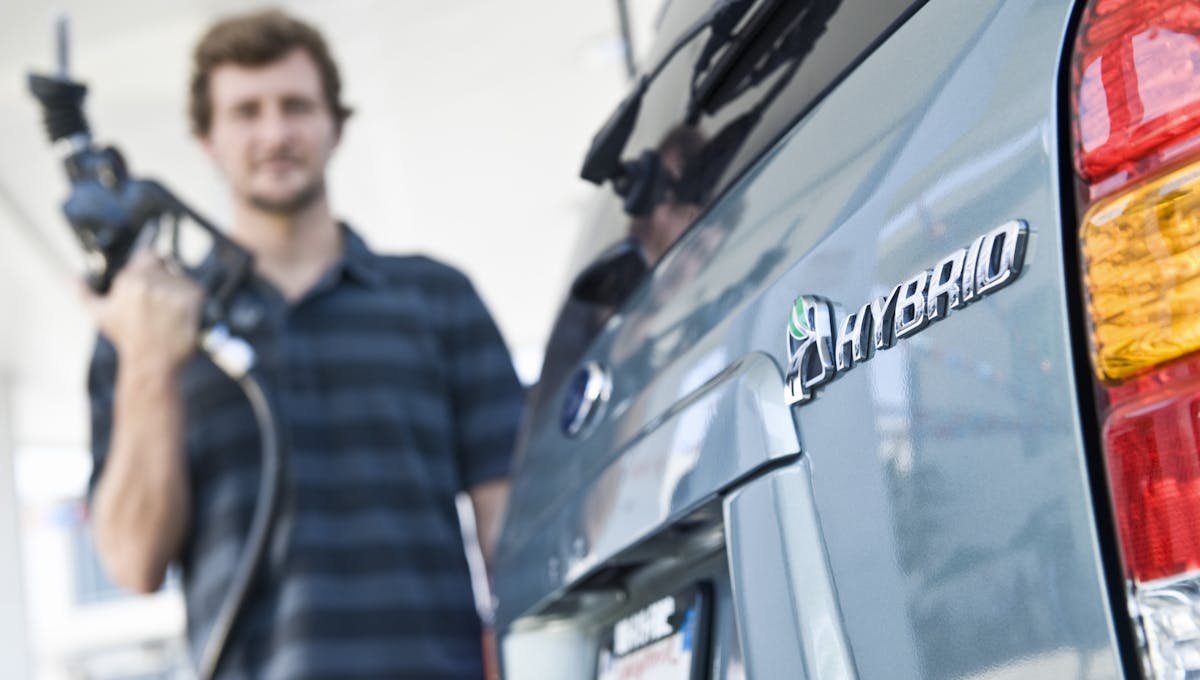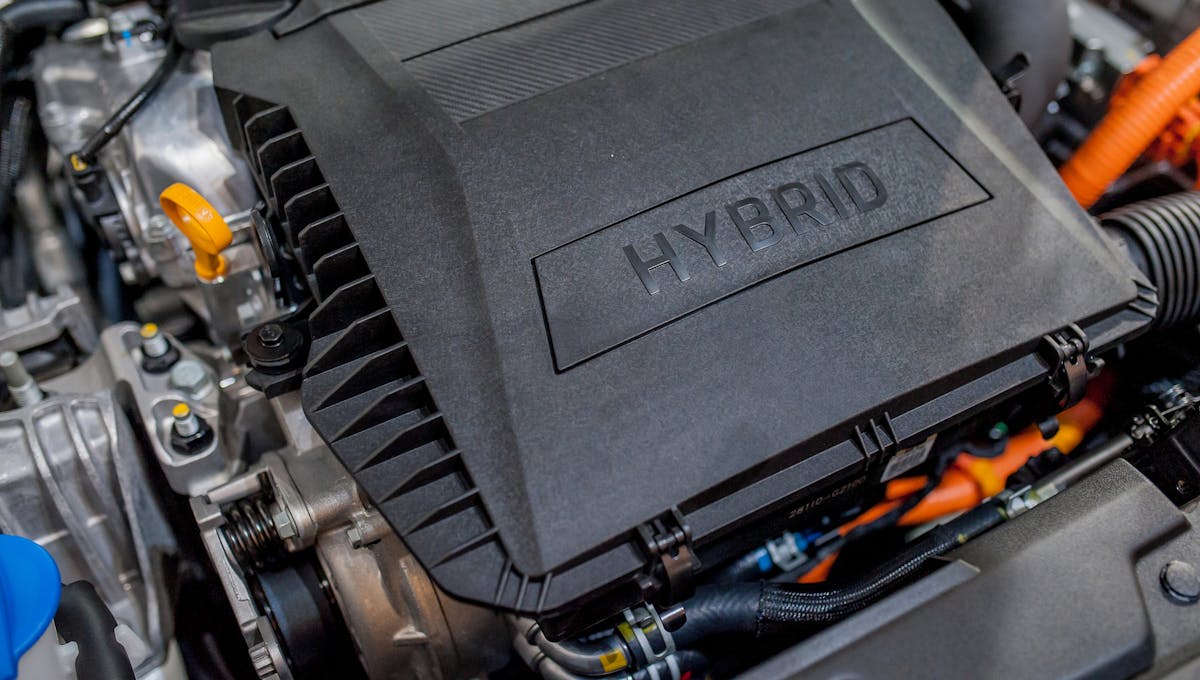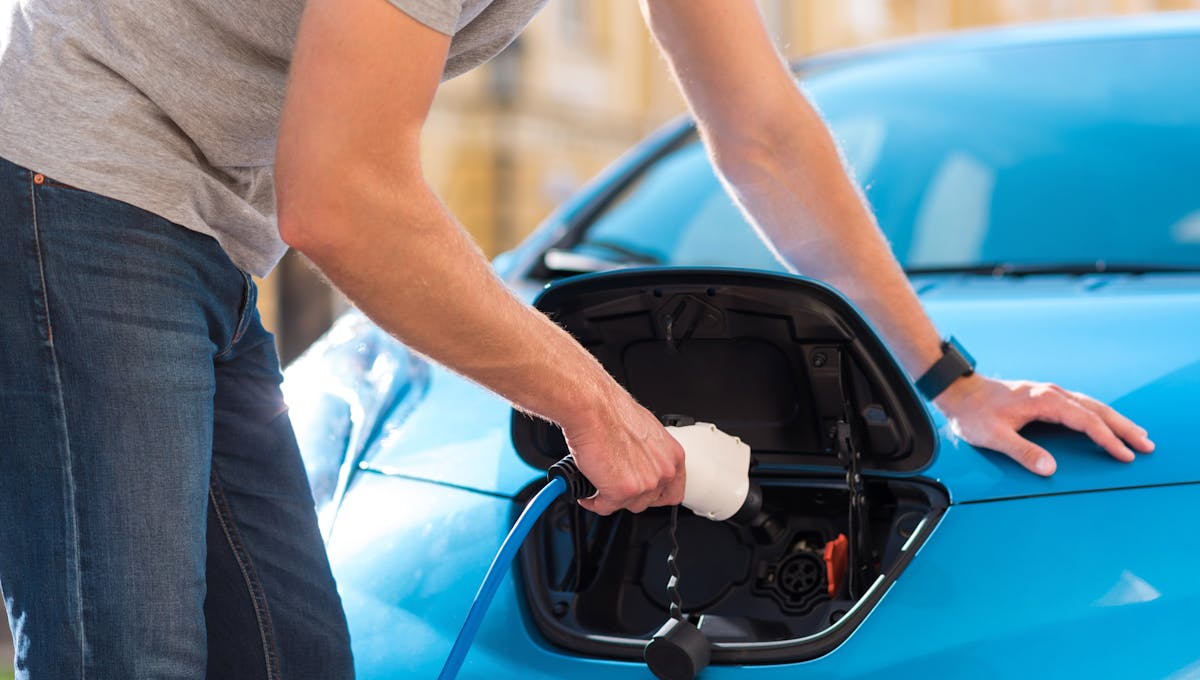What is a Hybrid Car? Mild, Plug-in and Self-Charging Hybrids Explained
If the Government’s plan to phase out petrol and diesel cars from 2030 tells you one thing, it’s that the future is electric.
So, what is a hybrid car? Is it worth considering a hybrid for your next car, or should you go straight to electric?
In this post we explain what a hybrid car is, how they work, and the different types of hybrid cars that are currently on the market.
What is a hybrid car?
Put simply, a hybrid car is one that uses more than one fuel type or means of propulsion. Hybrid cars combine either petrol or diesel engines with a battery and electric motor.
There are two main advantages to driving a hybrid car: it will consume less fuel and emit less CO2 than similar models with just a petrol or diesel engine.
Because hybrid cars typically have lower CO2 emissions than internal combustion engines (ICEs) there are also some great financial incentives on offer for those who purchase or lease them. These include reduced first year road tax and lower BiK tax bands.

What are the different types of hybrid car?
There are three main types of hybrid available, with a choice of both petrol and diesel engines supplemented by different levels of electric assistance.
Mild Hybrid (MHEV)
A mild hybrid has an electric motor and a combustion engine. Most mild hybrids use a 48-volt system. This is higher than the traditional 12v systems found in ordinary petrol or diesel cars, and allows the battery to power components that would have otherwise been driven by the engine.
However, as the name suggests, mild hybrids offer just a small measure of electrical assistance to the engine - not enough for the car to drive using the battery alone.
Mild hybrids are usually the cheapest hybrids. The Suzuki Swift and Suzuki Ignis are great examples of affordable hybrid cars. Both have less than 100g/km CO2 emissions, and while acceleration is by no means brain-melting, the mild hybrid system certainly makes for a surprising turn of pace.
Full Hybrid (HEV)
A full hybrid (sometimes called a self-charging hybrid) can run on either the fuel from the combustion engine (petrol or diesel), or the electric engine, or both at once. The electric motor is usually used to accelerate from zero, and may be capable of driving short distances (i.e. around town) by itself.
A typical example of a full hybrid is the Toyota Prius. The Prius has an electric-only range of 25 miles. Unlike a plug-in hybrid, it does not need to be plugged in to recharge. Instead, the battery is recharged through driving and regenerative braking.
Plug-in Hybrid (PHEV)
What is a plug-in hybrid? As you’ve probably guessed, it’s a hybrid that needs to be plugged into the mains in order to fully recharge the battery. PHEVs can be run in an all-electric mode, and have a larger battery than full hybrid electric vehicles so they can go much further.
Plug-in Hybrids have come a long way in recent years too. The BMW X5 xDrive45e is arguably one of the most versatile PHEVs on sale, with a market-beating 54-mile claimed all-electric range.
It might be a beast of an SUV, but with a rating of just 32g/km CO2 emissions, it also sits in one of the lowest BiK tax bands, making it a great choice for a company car.
For a more in-depth comparison of hybrid cars, check out our comparison of plug-in hybrid vs hybrid cars.
How does a hybrid work?
Hybrid vehicles employ a range of different technologies to reduce CO2 emissions and increase that all-important MPG figure.
Stop-Start
The stop-start system will shut the engine down every time the vehicle stops (for instance, at traffic lights) and restart the engine every time the accelerator is pressed.
You’d be surprised by just how much you can improve your miles per gallon just by removing engine idling time from a journey.
Electric Motor Drive/Assistance
The electric motor can provide power to assist the engine in accelerating, overtaking or climbing steep gradients. This can allow a smaller and more efficient engine to be used in place of a larger one.
In some hybrids, the electric motor alone is able to propel the vehicle at low speeds. This is where petrol and diesel cars are the least efficient. The Toyota Prius uses only the electric motor to drive at speeds up to 15mph.
Regenerative Braking
As many will remember from high school physics lessons: energy cannot be destroyed. Instead, it is converted from one form of energy to another.
This is the principle behind friction brakes, which convert kinetic energy into thermal energy. Although friction brakes are very effective at slowing a vehicle down, the heat produced from braking only wears the brakes down, producing toxic ‘brake dust’ and leading to expensive replacements. What’s more, that heat is completely lost to the environment afterwards.
Instead of converting kinetic energy to thermal energy, regenerative brakes convert that energy back into electrical energy, which can be stored in the battery of the car for later use.

How long do hybrid batteries last?
We know what you’re thinking: batteries don’t last forever.
So, how long before your hybrid battery is fried and your hybrid is just like any other regular internal combustion engine?
The great news is, hybrid batteries are built to last. Don’t believe us? Manufacturers like Toyota offer a generous ten year warranty on their vehicle’s hybrid system to make sure it still works like it did when it was new.
What are the benefits of driving a hybrid car?
Driving a hybrid is a lot like driving a conventional automatic petrol or diesel car.
There’s no such thing as ‘range anxiety’. It doesn’t matter that the battery is small and you won’t have to plan your routes according to charging points - hybrids charge up their own batteries, and work just fine with just petrol and diesel.
Many full hybrids will also allow you to decide exactly how you want to use your combination of fuel sources, with a choice between eco and performance modes.
If you’re looking for a hybrid purely to save money, however, you might want to give more consideration to a full Battery Electric Vehicle (BEV).
What are the downsides to a hybrid car?
The tax benefits for driving a hybrid car aren’t as big as they used to be, and it’s likely that they’ll continue to decrease as the UK gears up for the 2030 ban on the sale of petrol and diesel cars.
Beyond the 25th October 2021, hybrid cars (emitting less than 75g/km CO2) will no longer be eligible for the London congestion charge exemption in the Ultra-Low Emissions Zone (ULEZ). The ULEZ is also set to expand after this date, and will encompass everything between the North Circular Road (A406) and South Circular Road (A205). In other words, if you plan to drive a lot around London - a hybrid car probably isn’t for you.

Should I buy a hybrid car?
A hybrid car is a good choice for those who do most of their mileage in and around town but occasionally enjoy longer excursions, as you’ll be able to take advantage of the more efficient electric motor, stop-start functionality, rapid acceleration and regenerative braking to eke out the most miles with the least CO2.
However, Government incentives for hybrid cars aren’t what they once were, and if you don’t need the added flexibility for longer journeys, you might do just fine with an electric car. The initial outlay will be higher, but overall running costs are much cheaper, with guaranteed zero tailpipe emissions, unbeatable BiK rates, and some incredible EV tariffs to help you charge at home for less. Plus, you won’t have to pay congestion charges.
If you tend to spend more time on the motorway however, an efficient diesel might be your best option. You’ll get better fuel economy at high speeds and you won’t have to wait for half an hour every time you need to charge.
Conclusion
Hybrid cars offer many advantages over petrol and diesel cars - and thanks to cheaper, smaller and longer-lasting battery technologies, they’re becoming increasingly competent little cars.
Whether or not a hybrid car is for you depends largely on how far you drive each day and whereabouts in the UK you are.. For Londoners, the benefits of driving a hybrid are fast disappearing when compared to EVs.
If you want to cut down your emissions but you’re not sure where you stand on hybrid vs electric, why not check out our full list of best hybrid cars and best electric cars? If money is an issue, you can get a flavour of the best affordable EVs on offer right now with our list of cheapest electric cars.

